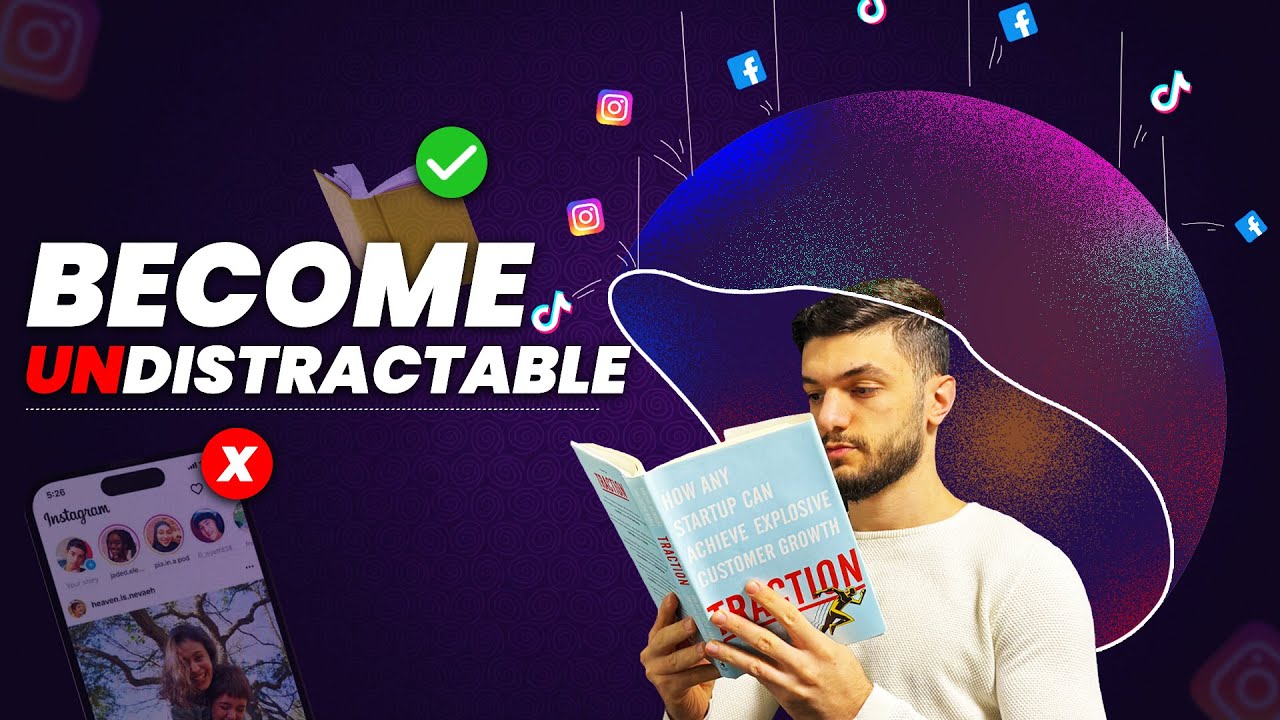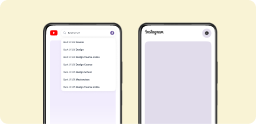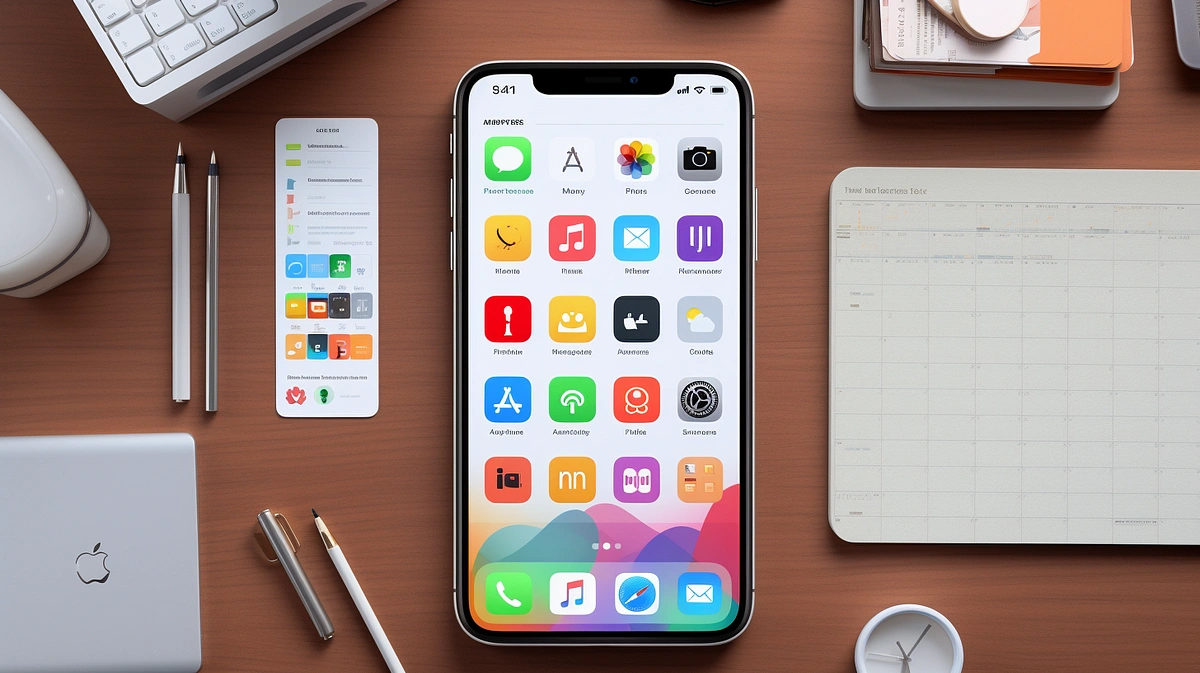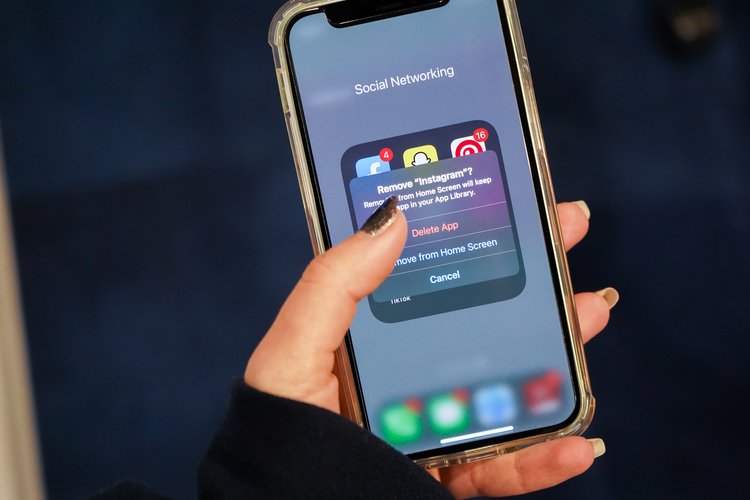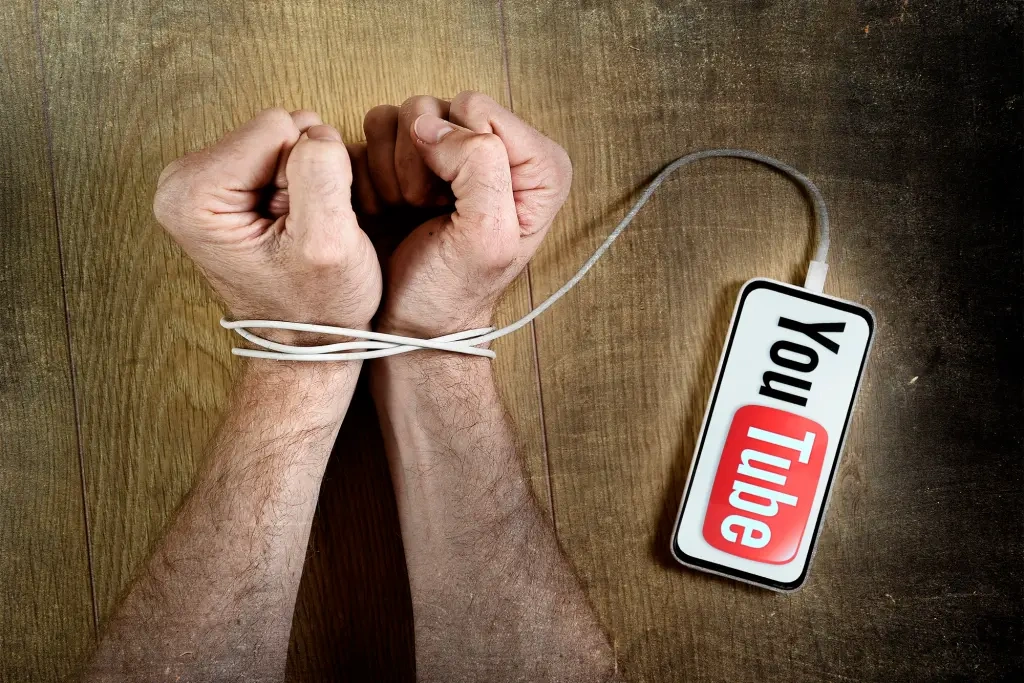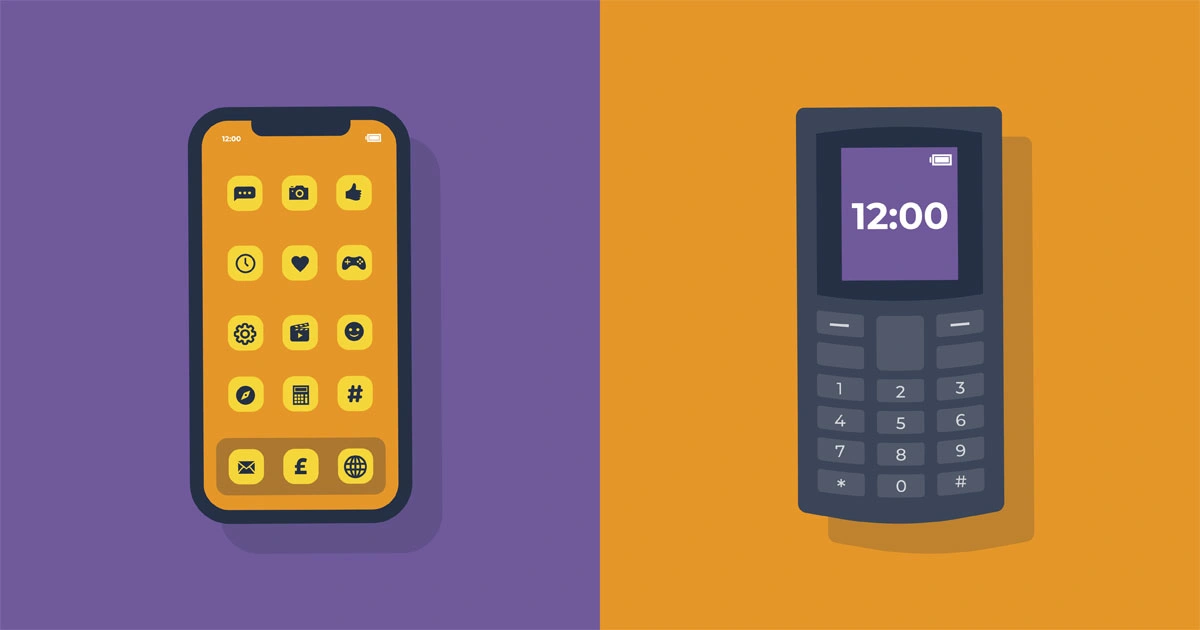Why can't I Focus on Work?
We all have those days when you just find it impossible to concentrate on your work. You end up staring at your screen or phone and you’re doing everything humanly possible not to get your work done. And all you can do is wonder, "Why Can't I focus on my work?".
Your task list is only growing and your anxiety is starting to creep in.
Being unable to concentrate on your tasks will lead to affecting your grades or performance at work.
Concentration is critical to think through difficult problems but also to recalling necessary information. Anyways, I’m sure you understand the importance of getting stuff done. Before we get to the list of reasons that you are not able to focus at work, I want to introduce to you BeTimeful - the best way to do a dopamine detox to help your brain regain focus and motivation.
If you are looking to reduce your social media distraction; HOWEVER, you might also feel a little anxious about cutting ties and feeling left out. Luckily we created BeTimeful with you in mind. By installing BeTimeful on your Android or iPhone, you can continue to stay connected without getting distracted by the Newsfeed:
BeTimeful makes sure you don't hooked into scrolling for hours. With BeTimeful, you don't need to delete social media apps or use any blocker. Here is how it works:
✅ BeTimeful hides all your distracting social media apps from your iPhone or Android 🔒
✅ You can have timed access to the distracting apps (scroll for 1, 5, 10 or more on your favourite App) 🕝
✅ Have unlimited access to feedless Instagram and YouTube!
✅ Access DM's without getting distracted 🤝
✅ Message your friends, prospects, and clients 📩
✅ Post videos, Reels, and all your content 📲
🔥 You can finally stay connected, productive, and NOT distracted with BeTimeful!
Table of Reasons why you can't focus on work:
- You are not using Social media the right way
- You’re multitasking
- You're too tired
- Facing Racing and distracting thoughts
- Lack of clarity on your tasks
- Stress and Anxiety
- Poor Nutrition and Hydration
- Lack of motivation
- Poor time management
1. You are overusing social media and your dopamine levels are off the charts
If you are having a hard time focusing at work, it means you might be overly stimulated by social media and it's time to look into disconnecting from social media. In fact, with BeTimeful, you don't even need to quit social media. If you think you're getting distracted by social media too much, you might have scrolling paralysis and you may want to consider doing a social media detox.
Your phone addiction most likely stems from some social media addiction. Social media addiction is designed to be addicting. That's exactly where BeTimeful's news feed blocker comes in. You can stay connected, productive, and not Distracted! Start your free trial today! We're not saying that you should completely block or quit social media, we're saying you should use social media without getting used by it! Download BeTimeful on Android or iPhone. BeTimeful makes sure you don't hooked into scrolling for hours. With BeTimeful, you don't need to delete social media apps or use any blocker.
2. You’re multitasking
One reason you are having a hard time staying focused is because you are multitasking. Doing more than one thing at a time is almost always a sure way to do nothing at all while exhausting yourself.
Are you trying to have a texting conversation while listening to music and trying to get your work done? If yes, stop, put your phone away. If you need to listen to music make sure that it’s instrumental - music with words distracts your inner dialogue. Furthermore, multitasking will cause you to spend up to 40% longer on tasks than you would otherwise (1). This is because your brain has to switch back and forth between the objects of your attention. If you're worried about your phone addiction, we've written a blog to help you with that.
Your brain can only think about one thing at a time so make sure that you are doing only one thing at a time.
If you keep getting distracted by social media, YouTube or Reddit - set up BeTimeful and stop getting distracted.
Otherwise you can check out all the other productivity tools that we have outlined here.
3. You’re too tired
Directed Attention Fatigue occurs when your brain is exhausted from maintaining attention for too long. Once your brain is too tired, it becomes very challenging to maintain concentration.
The best thing that you can do is to rest, close your eyes, take a nap, meditate or even stare out of the window for a bit. Looking at nature has been proven to decrease directed attention fatigue. (2)
Another way to ensure that you don’t continuously over tire yourself is to take breaks. A technique that you can use to spread out your focus is called the Pomodoro effect. First, write out exactly what needs to be done and remove all distractions - did we mention install BeTimeful on your browser? ;)
Next, set a timer for 25 minutes and for that duration try to work on one task at a time without diverting your attention elsewhere. Once the 25 minutes are completed take a 5 minute break - let your mind wander while looking outside the window. This will help you stay fresh while accomplishing your tasks.
You can install the Pomodoro timer on your computer so you can easily set a timer.
4. Racing and distracting thoughts
We’ve all been. We have our to-do list ready, we sit down to do the work and our brain is racing at 100 miles per hour. We start reading or working and all of the sudden we’re thinking of a bunch of different things, ‘Did I forget my laundry in the washer?’, ‘Did I reply to my friend’s text?’, etc. Here is what you need to understand about racing and distracting thoughts and how to handle them:
Origin: These thoughts often originate from stress, anxiety, or overstimulation. They can be random or focused on specific worries or tasks.
Impact: They can disrupt concentration, sleep, and even emotional stability, leading to feelings of being overwhelmed or out of control.
Strategies to Manage Racing and Distracting Thoughts
Mindfulness and Meditation:
- Practice Mindfulness: Engage in mindfulness practices where you focus on the present moment. This can help anchor your mind, reducing the power of distracting thoughts.
- Meditation: Regular meditation teaches you to observe your thoughts without getting caught up in them. Apps like Headspace or Calm can be useful guides.
Breathing Techniques:
- Deep Breathing: Practice deep, controlled breathing to calm your nervous system. Techniques like the 4-7-8 method (inhale for 4 seconds, hold for 7, exhale for 8) can be particularly effective.
- Cognitive Behavioral Techniques:
- Thought Challenging: Question the validity and helpfulness of your racing thoughts. Are they based on facts or assumptions? Are they productive?
- Reframing Thoughts: Try to reframe negative or distracting thoughts into more positive or realistic ones.
- Journaling:
- Write it Down: Keeping a journal to write down your thoughts can help clear your mind. This act of externalization makes thoughts less overwhelming.
Physical Activity:
- Exercise: Engaging in physical activities, especially those that require focus like yoga or team sports, can divert your mind from distracting thoughts.
Structured Schedules:
- Routine: Establishing a routine can provide a sense of control and predictability, which can help ease anxiety and the associated racing thoughts.
Professional Support:
- Therapy: Therapists can provide personalized strategies to manage intrusive thoughts. Techniques like Cognitive Behavioral Therapy (CBT) are often effective.
Limit Stimulants:
- Dietary Choices: Reduce intake of stimulants like caffeine, which can exacerbate anxiety and lead to racing thoughts.
Sleep Hygiene:
- Regular Sleep Schedule: Ensuring you have a consistent sleep routine can significantly impact your mental health and help regulate your thought processes.
Mindful Activities:
- Hobbies: Engage in activities that require focus and concentration, such as painting, playing a musical instrument, or crafting. These can act as a mental break from intrusive thoughts.
Incorporating These Strategies
- Gradual Implementation: Start with one or two strategies and gradually incorporate more as needed.
- Consistency: Consistency is key. Regular practice of these techniques can lead to better control over your thoughts.
- Patience: Managing racing thoughts is a skill that takes time to develop. Be patient with yourself as you learn to navigate and control these experiences.
By employing these strategies, you can gain greater control over your racing and distracting thoughts, leading to improved focus, reduced anxiety, and a more balanced mental state. Remember, what works best can vary from person to person, so it's important to find the combination of techniques that works best for you.
5. Lack of Clarity on your tasks
Lack of focus or concentration is sometimes a sign of disorganization. Having too many conflicting priorities can lead to overwhelm. If you are juggling too many things at once, it’s hard to know what task is a priority. If you keep leaving your work midway through or unfinished, it means you’re getting overwhelmed.
One of the best ways to prevent this from happening is to set time aside for planning. Planning will allow you to think ahead, and plan for all your tasks to get finished - even checking on your friends and laundry. During your planning phase you can brainstorm and think about all the possible action items that you need to get finished.
Block time in your calendar to plan for your week ahead. Also finish your day with noting what you’ve done well, what you could improve on and what are the tasks for tomorrow. This doesn’t have to take long but your subconscious will start working on the next day’s tasks. I have to thank you for Brian Tracy for his instrumental productivity tips.
6. Stress and Anxiety
Let's delve deeper into how stress and anxiety can impact your focus at work, and explore practical advice for managing these challenges.
Impact of Stress and Anxiety on Focus
- Cognitive Overload: Stress and anxiety often lead to a state of cognitive overload, where your brain is bombarded with worrisome thoughts. This constant mental chatter can make it hard to concentrate on work tasks.
- Reduced Working Memory: High stress levels can impair your working memory – the brain's ability to hold and process information in the short term. This makes it difficult to follow complex instructions or retain important details.
- Emotional Exhaustion: Chronic stress and anxiety can lead to emotional exhaustion, reducing your overall mental energy and ability to focus.
- Hyperarousal State: Anxiety often puts you in a state of hyperarousal, where you're excessively alert to potential threats. This state can make it hard to relax and focus on work.
- Decreased Motivation: Long-term stress can diminish your motivation, making tasks seem more daunting and less rewarding, further affecting your ability to concentrate.
Practical Advice for Managing Stress and Anxiety at Work
- Mindfulness and Meditation: Practices like mindfulness and meditation can help calm your mind and reduce stress. They train you to focus on the present moment, reducing the impact of distracting thoughts.
- Physical Exercise: Regular physical activity is a powerful stress reliever. It releases endorphins (natural mood lifters) and can improve your overall mental health, enhancing your focus at work.
- Structured Breaks: Take regular, short breaks throughout the workday. Use this time for a brief walk, stretching, or a relaxation technique. This can help reset your mental state.
- Time Management: Plan your day and prioritize tasks. This helps reduce the feeling of being overwhelmed and allows you to focus on one task at a time.
- Healthy Boundaries: Set clear boundaries between work and personal life. This includes designated work hours and ensuring personal time is respected.
- Seek Professional Help: If stress and anxiety are significantly impacting your life, consider seeking help from a mental health professional. Therapy can provide personalized strategies and support.
- Breathing Exercises: Simple breathing techniques can be an immediate way to reduce acute stress and help refocus your mind.
- Healthy Diet: A balanced diet rich in nutrients can impact your overall mental health. Omega-3 fatty acids, for instance, have been found to reduce symptoms of anxiety.
- Sleep Hygiene: Ensure you get adequate and quality sleep, as poor sleep can exacerbate stress and anxiety.
- Social Support: Don’t underestimate the power of talking to someone. Sharing your concerns with friends, family, or colleagues can provide relief and perspective.
By acknowledging the impact of stress and anxiety on your ability to focus at work and adopting these practical strategies, you can improve your mental wellbeing and enhance your work performance. Remember, managing stress is not about eliminating it entirely but about finding effective ways to cope and maintain your focus.
7. Poor Nutrition and Hydration
Poor nutrition and hydration can significantly impact your mental performance, including your ability to focus and concentrate. Let's delve into how this happens and provide practical advice on how to handle it.
Understanding the Impact of Nutrition and Hydration on Focus
-
Brain Function: The brain requires a steady supply of nutrients and hydration to function optimally. Lack of these can lead to decreased cognitive abilities, including focus and memory.
-
Blood Sugar Levels: Unstable blood sugar levels, often a result of poor nutrition, can lead to energy spikes and crashes, affecting your concentration and alertness.
-
Dehydration: Even mild dehydration can impair cognitive functions and attention span.
-
Nutrient Deficiencies: Deficiencies in certain vitamins and minerals can impact brain health and cognitive functions.
Practical Advice for Improving Nutrition and Hydration
-
Balanced Diet:
- Variety of Foods: Incorporate a variety of fruits, vegetables, whole grains, lean proteins, and healthy fats into your diet.
- Regular Meals: Eat regular meals to maintain stable blood sugar levels. Skipping meals can lead to low energy and poor concentration.
-
Stay Hydrated:
- Water Intake: Aim to drink at least 8 glasses of water a day. Keep a water bottle handy as a reminder to drink regularly.
- Limit Caffeine and Alcohol: Both can contribute to dehydration. Moderation is key.
-
Mindful Eating:
- Pay Attention to Hunger and Fullness Cues: Eating mindfully helps in recognizing when you're genuinely hungry and when you're full, preventing over or under-eating.
-
Healthy Snacks:
- Snack Wisely: Choose snacks that boost energy and focus, like nuts, yogurt, or fruits. Avoid high sugar snacks that can lead to energy crashes.
-
Supplements:
- Consider Supplements: If you're unable to get enough nutrients from your diet, supplements like Omega-3 fatty acids, B vitamins, and iron may be beneficial (after consulting with a healthcare provider).
-
Meal Planning:
- Plan Your Meals: Planning meals in advance ensures you have the necessary ingredients for a balanced diet, reducing the likelihood of opting for less nutritious options.
-
Limit Processed Foods:
- Reduce Intake of Processed Foods: These often contain high levels of sugar, salt, and unhealthy fats, which can affect mental performance.
-
Cook at Home:
- Home-Cooked Meals: Cooking at home gives you control over ingredients and helps you make healthier choices.
-
Stay Informed:
- Nutrition Knowledge: Educate yourself about nutrition. Understanding what your body needs can help you make better food choices.
-
Professional Advice:
- Consult a Dietitian: If you're unsure about your dietary needs, a consultation with a dietitian can provide personalized advice.
Incorporating These Changes
- Start Small: Begin with small, manageable changes to your diet and gradually incorporate more.
- Consistency is Key: Regularly following these practices is more important than making drastic changes occasionally.
- Listen to Your Body: Pay attention to how different foods affect your energy and focus. This can guide you in making better nutritional choices.
By improving your nutrition and hydration, you can significantly enhance your cognitive functions, including focus and concentration. Remember, the goal is to create a sustainable and balanced approach to eating and drinking that supports your overall mental performance.
8. Lack of motivation
A lack of motivation can be a significant barrier to productivity, and it's a common challenge in both personal and professional contexts. To address this issue and help you regain your drive, here are practical steps you can take, weaving in the specified keywords and backlinks naturally:
Identify the Root Cause: Understanding why you're unmotivated is crucial. Reflect on what may be causing your lack of drive. It could be a lack of interest in the work, feeling overwhelmed, or not seeing the value in the task. Sometimes, reading through some atomic habits quotes can provide insights and inspiration to help you get to the root of your motivational issues.
Set Clear Goals: Having clear, achievable goals can significantly boost your motivation. Break down larger tasks into smaller, manageable steps. This helps create a sense of accomplishment as you complete each step, which can fuel further motivation.
Create a Productive Environment: Organize your workspace to minimize distractions. If you find yourself frequently distracted by platforms like YouTube, you might want to explore ways on how to stop watching YouTube excessively to ensure that your environment supports your work.
Use Positive Reinforcement: Reward yourself for completing tasks. This positive reinforcement can be a powerful motivator. It can be something as simple as a coffee break or a short walk.
Build a Routine: Establishing a daily routine can enhance your sense of structure and purpose. Consistency in your habits can naturally enhance your motivation over time.
Manage Your Energy: Pay attention to your energy levels throughout the day and schedule your most challenging tasks for when you're most alert and energetic. Understanding the 5 things that steal your motivation can help you avoid common pitfalls that drain your energy and hinder your motivation.
Limit Digital Distractions: Digital distractions are a major cause of lost focus and motivation. If you're an iPhone user and find yourself frequently sidetracked by social media, learning how to block Instagram on your iPhone could be a valuable step towards regaining control over your digital life.
Connect with Your Why: Remind yourself of the reasons why the task is important. Whether it's personal growth, financial incentives, or the satisfaction of a job well done, keeping your 'why' in mind can be a strong motivator.
Seek Feedback: Regular feedback can provide a sense of progress and direction. It can be motivating to know that you're on the right track or to receive guidance on how to improve.
Take Care of Your Health: Regular exercise, a balanced diet, and adequate sleep can significantly impact your motivation levels. Take care of your physical health to ensure you have the energy to stay motivated.
Learn and Adjust: Reflect on what strategies work best for you and adjust your approach accordingly. Motivation is not one-size-fits-all, and different techniques work better for different people.
Seek Inspiration: Sometimes, looking at motivational content or reading inspiring quotes can give you the push you need. Keep a collection of favorite quotes or stories that you can turn to when you need a motivational boost.
When You Can't Focus:
There will be days when despite your best efforts, you just can't focus at work. Recognize that it's okay to have off days. Instead of forcing it, take a short break or switch to a different task and come back to it later with fresh eyes.
Combining these strategies can create a comprehensive approach to improving your motivation. Remember, motivation ebbs and flows, and it's normal to have periods where you feel less driven. The key is to have a toolkit of strategies like these to draw upon to help you regain your motivation when it wanes.
9. Poor time-management
Poor time management is a common issue that can lead to a lack of productivity and increased stress. Fortunately, there are several strategies you can employ to improve your time management skills. As we go through these strategies, I will incorporate your provided keywords and backlinks naturally into the content.
Review Your Habits: Take the time to conduct an atomic habits review. This involves examining your current habits and identifying which ones are conducive to productivity and which are not. Understanding your habits is the first step in mastering the micro-revolutions that will enhance your time management.
Track Your Time: If you're an Android user, learn how to find screen time on Android. This feature helps you monitor how much time you spend on your device, which can be eye-opening and a catalyst for change.
Control Digital Distractions: For iPhone users, it's beneficial to understand how to block apps on iPhone to regain your focus and control. Limiting access to distracting apps can free up significant time in your day.
Address Online Habits: If YouTube is taking up too much of your time, consider looking into addicted to YouTube for strategies to overcome this addiction and reclaim your time.
Educate Yourself: Invest time in reading the best books on focus. These resources can provide you with insights and techniques to enhance your concentration and time management skills.
Learn from the Experts: Dive into Cal Newport books to learn from one of the masters of productivity and focused work.
Implement Deep Work Practices: Familiarize yourself with the deep work summary. Cal Newport's concept of deep work emphasizes the importance of uninterrupted, focused time on tasks, which can significantly improve your time management and output.
Combat Digital Overload: Recognize if you're experiencing scrolling paralysis and take steps to overcome the habit of endless scrolling, which can be a major time-waster.
Adopt Digital Minimalism: Consider adopting principles of digital minimalism. This philosophy helps you focus on the digital tools that serve your values and minimize those that distract you from your goals.
By implementing these strategies, you can develop a more disciplined approach to time management. Remember, time management is not about packing more tasks into your day; it's about simplifying how you work, reducing distractions, and doing more of what matters.
Conclusion
A scattered brain is completely normal and nothing to be ashamed of. We’ve all been! However, we have to learn to do everything we can to set ourselves up for success. One necessary step is to ensure that we are finishing our tasks and getting our work done. In order to do this, you have to set time aside to be distracted. You also have to set time aside to plan ahead and make sure you know what needs to get done. This will prevent overwhelm and ensure you are being productive!
Curios to know the Top 18 time management tools or reasons to quit social media? Deleting youtube shorts is the first step as there are numerous benefits of unplugging from social media. We've also got Looking for best productivity hacks and how to get screen time widget !
Citation
• American Psychological Association. (n.d.). Multitasking: Switching costs. American Psychological Association. Retrieved October 27, 2021, from https://www.apa.org/research/action/multitask.
• Varkovetski, M. (2016). The reduction of directed attention fatigue through exposure to visual nature stimuli: Exploring a natural therapy for fatigue. SURG Journal, 8(2), 5–13.https://doi.org/10.21083/surg.v8i2.3057

